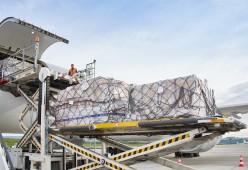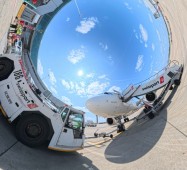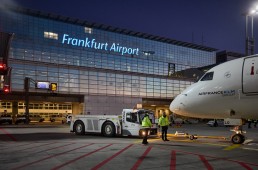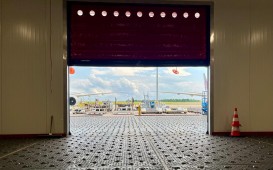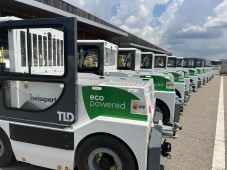CLIMATE CHANGE
At Swissport, we have a 10-year plan for decarbonization, collaborating with our ecosystem to inspire and implement change. Across our workforce of 65,000 people in 45 countries worldwide, we aim to adapt the equipment they use and the way they work to drive our business transformation.
Since 2022, we have been comprehensively reporting our global carbon emissions across all three scopes. Our data covers operations in all countries and locations, strictly adhering to the internationally recognized standards of the GHG Protocol using appropriate emission factors for accurate calculations. This transparency ensures meaningful year-on-year comparisons and accountability.
We are investing around €1.5 billion over five years in capital infrastructure, including ground support equipment (GSE) and innovative eco-friendly technology. Our pledge to electrify 55% of our motorized fleet by 2032 is already showing progress, with 25% of our global fleet now electric as of June 2025. In our cargo operations, we're ahead of schedule with 63% of forklifts already electrified.
For Scope 2 emissions, we are actively transitioning to green electricity by collaborating closely with airports and primary energy suppliers. We've achieved initial successes in Liège, Belgium, and Nairobi, Kenya, where our cargo warehouses are powered by solar panels. Our comprehensive approach addresses Scope 3 emissions through our refueling business, leveraging our influence in fuel transport and logistics to drive change across our value chain.
Going Electric
Eco-Powered Fleet
Increasing climate change awareness has brought a sharper focus on the use of fossil fuels. Swissport is aware of its responsibility and is increasingly using electrically powered and hybrid GSE (eGSE) instead of fossil-fuel powered vehicles.


